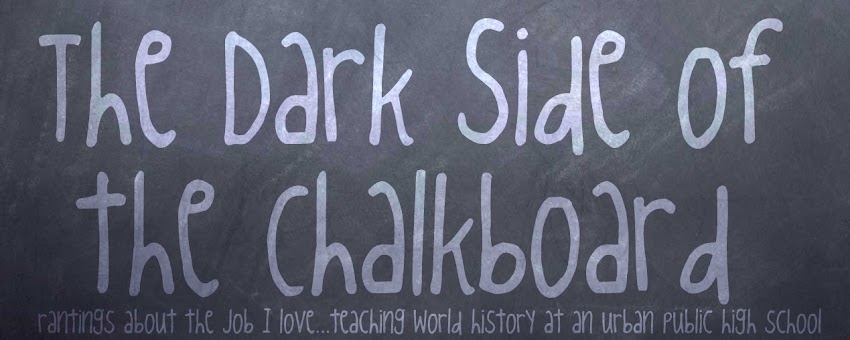I didn't used to like football. In fact, I didn't understand the game. I have since repented.
I love high school football games, despite the fact that attending a game here is NOTHING like attending a high school game in Texas. The football team from my school is an okay team but anyone who attends more than a game or two will notice that they have a couple of fairly serious flaws. One is that they have no passing game, but that is not the point of this post. The point of this post is that one of the biggest flaws of this team, and one that has been a recurring problem for as long as I have seen them play, is that they do not know how to deal with failure.
This is a scrappy team. There aren't any huge players, and the smaller players are actually the best players. They are a decent team, as long as they are winning. But if they ever get behind, they stay behind and they will lose the game. These kids do not know how to handle failure.
I don't know if it is a cultural thing, or a generational thing, but there it is and there is no other explanation for it. To these kids, failure is a giant, insurmountable hurdle that they absolutely cannot get past. They don't know how to handle frustration. In football, this is manifested by making stupid decisions, resulting in excessive penalties, loss in yardage, and an eventual loss of the game. They get behind or make a simple mistake, and instead of putting it behind them and moving on, they focus on it. Focusing on that mistake causes them to fear repeating that mistake, leading to higher stress levels, which causes more (and larger) mistakes. This continues in an endless cycle until the game is lost.
In talking to one of the coaches/new teachers about this, I realized that this same habit translates to my classroom as well. My students don't know how to learn from their mistakes. For my students, if they forget to do their homework, they not only don't turn in that homework, but they don't turn in anything else after that either. If they are working on a ten question homework assignment and they get nine questions done but can't find the answer to the last one, they won't turn in that assignment. They won't ask for help either. Getting over the hurdle of asking for help or using what is, in my opinion, common sense and turning in an assignment with a grade of 9 out of ten, doesn't occur to them as being the logical solution.
I don't know how to change this. I can see the problem, but I can't identify with the problem. I don't know how to make them understand that failure isn't something that should stop them in their tracks, it's a challenge to do better. I know these kids understand challenges. They all have challenges in their lives. What I (ironically) fail at, is getting them to translate how they deal with what happens in their lives to how they deal with what happens in my classroom or on that football field.
I wish I knew the solution. I wish I had a magic bullet or special powder to make them understand. But I don't. So I'll carry on, trying my best to help them, and hoping they someday figure it out.

1 comment:
This observation is truly accurate. It's something I should spend more time thinking about myself. How do you teach students to overcome? Resiliency is one of the most important factors in whether a child goes on to be successful or not. Is it genetic? learned at home? or is it teachable in the classroom. The only thing that comes to mind is incorporating case studies on resiliency in the classroom. I'm going to do some thinking on this.
Post a Comment